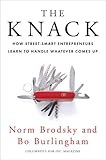 Wish I could say I called it first, but it was an obvious idea from the start.
Wish I could say I called it first, but it was an obvious idea from the start.
According to the Wall Street Journal, Amazon (AMZN) “plans to unveil a new version of its Kindle e-book reader with a larger screen and other features designed to appeal to periodical and academic textbook publishers.”
Beginning this fall, some students at Case Western Reserve University in Cleveland will be given large-screen Kindles with textbooks for chemistry, computer science and a freshman seminar already installed, said Lev Gonick, the school’s chief information officer. The university plans to compare the experiences of students who get the Kindles and those who use traditional textbooks, he said.
…
Five other universities are involved in the Kindle project, according to people briefed on the matter. They are Pace, Princeton, Reed, Darden School at the University of Virginia, and Arizona State.
Lucky students! I wonder how they picked these universities.
Not everyone feels this way though. Frederic Lardinois of ReadWriteWeb doesn’t think students will use a Kindle for their studies, mainly because taking notes is different (he says “clunky”) on a Kindle and laptops exist as a viable electronic alternative. He’s made good points, though I respectfully disagree. Here is how I think it will play out:
Some students will rush to buy it, some will totally avoid it, and some will watch their friends use it and perhaps pick one up after an intelligent evaluation. As the Kindle becomes synonymous with education and books, these students will graduate and continue using their Kindles outside of college.
Hey, that strategy kind of sounds familiar. Apple (AAPL), ahem.
Who will avoid it?
- Students who like the tactile feel of a heavy textbook and using a highlighter & pen to take notes
- Students who don’t want to pay the upfront cost of a Kindle
- Students who just don’t like the device (too ugly, too unusable, etc)
Who will buy it?
- Students who determine that a Kindle and its e-books are cheaper than purchasing used textbooks
- Students who like the latest tech gadgets and toys (don’t underestimate the size of this group!)
- Students who have to carry around enormous textbooks and don’t want the added weight
I suspect that those who buy a Kindle will adopt new ways of note-taking as well. Students are adaptable and sharp that way. Maybe they’ll use Kindle’s built-in note-taking features. Maybe Amazon will add more features to improve this. Or maybe they’ll adopt other practices, like writing down important points in a notebook. I often did this because the act of writing helped me memorize information.
Point is, any shortcomings the Kindle has with note-taking features will probably be easily overcome by students who like the device for its price, portability, and weight.
They’ll most probably have a laptop too and see both devices as complementary instead of competitive. I can see students carrying both. They may even have both on the desk simultaneously – the Kindle with their e-textbook, their laptop with a few chat clients (procrastinators!), and perhaps some pens and paper for notes. Swap out the Kindle with a stack of textbooks and that’s the typical study set-up.
And that is a point I suspect is more important than Lardinois realizes. I don’t know which classes he took, but if you had classes with a ton of heavy textbooks, you’d probably do anything to relieve yourself of that burden. A Kindle is the perfect answer.
One more quick point: the Kindle’s Wikipedia and dictionary integration could be hidden gems. Students use sources like those often for research reports. While a laptop might still be easier to capture long paragraphs from Wikipedia, being able to look up a quick fact would be sweet awesomeness.
All Amazon needs is a few key students (read: connectors and social hubs) to enjoy their Kindles. Word of mouth marketing is huge on college campuses. It’s a great target market in a great WOM environment.
Man, thinking about all this kind of makes me wish I had a Kindle when I was a college student.



 The foundation of business is psychology. That is to say, if you understand psychology – especially the psychology of your customers – you’ll significantly increase your business’ chances of success.
The foundation of business is psychology. That is to say, if you understand psychology – especially the psychology of your customers – you’ll significantly increase your business’ chances of success.

 Some of the world’s greatest companies were born during economic recessions. Bet you didn’t know that.
Some of the world’s greatest companies were born during economic recessions. Bet you didn’t know that.